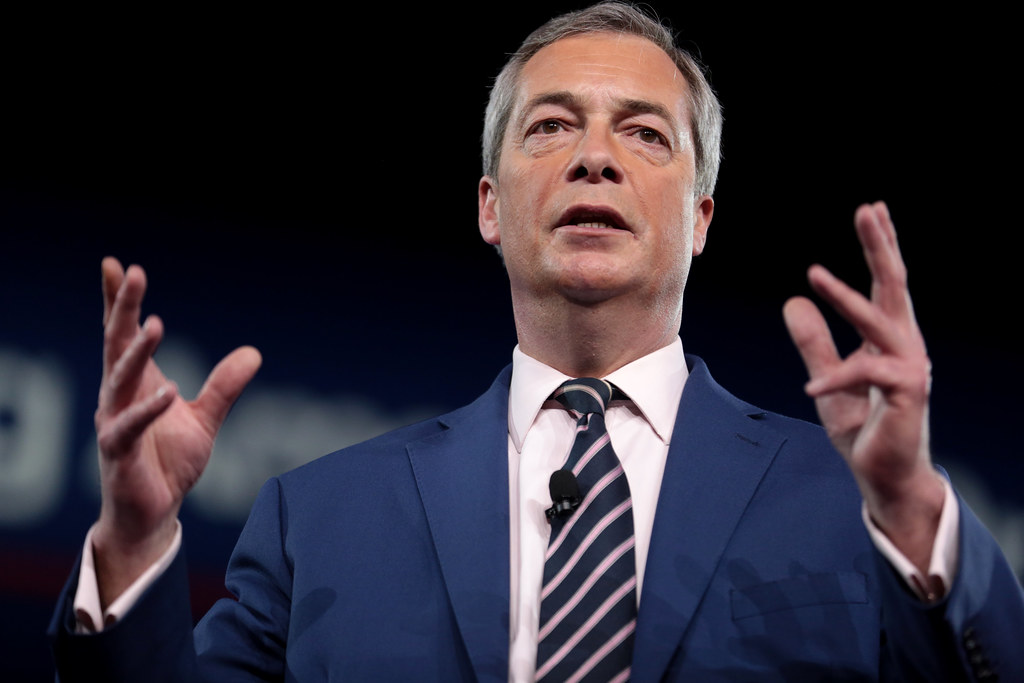The Role of the Internet, the EU Referendum Campaigns and the Rise of the Far-Right | Thomas Hingston

This is the most politically charged period in Britain’s
long history since the Great Reform Act and the Free Trade Debates of the
Edwardian Era. Most generations have a major debate upon which decades of
politics hinge upon. The great debate of our time appears to be regarding
Britain’s decision to leave the European Union with 51.9% of the population voting
Leave. For months, as soon as the 2015 General Election was completed and the EU
referendum was on the agenda, the public were fed all sorts of misinformation
from both sides, in a vicious and slanderous campaign which often resulted in
many online feuds depending upon which side of the coin you fell upon. It is
this very campaign and environment, which I believe allowed for the far-right
to thrive in.
Never before has a great debate utilised a propaganda-spreading
machine as well as the Internet, where the right-wing has dominated the
proceedings since. On a nearly universal scale, any political post from any
Party, regarding any issue, will almost certainly wake up an ultra-far-right-wing
comment preaching about why they voted Leave, why there should be no more
immigration, why ‘England’ is the best country on Earth and why anybody who
disagrees with them is a ‘liberal snowflake’ who cannot handle the truth.
Sadly, it is difficult to rationally argue against these people without
bringing up a storm of similar comments from abusive Far-Right commentators,
often in capital letters. It is this knife-edge political environment in which
the British Electorate has sat in since 2016. A minority of people hold the
majority of the commentary power online.
Sure, there are ‘lefty loonies’ who also try to preach
their points, and they are sometimes derogatory towards the far-right – but
these are vastly dwarfed by the growing numbers of the alt-right who have
gained confidence in their views since the vote to Leave the European Union and
feel able to conduct their minority views on a large scale. They get lots of
‘likes’ on their comments, as many ordinary voters are urged to leave them
alone unless they wish to start an argument with 20 people. This atmosphere of
ordinary voters not feeling able to have their say online in fear of a
far-right oppression campaign, is, in part, why the Conservatives have seen a
rise in their vote since 2015. The traditional UKIP/Leave voters have switched
allegiance in the promise of a hard-right Brexit; which was never the original
intention of the Conservative party in 2015, as they wished to Remain in the
EU. In this way, the Conservative Party have accurately assessed the role that
the internet has played in the past year, and adopted their policies forthwith.
If they can persuade these people with a massive online presence to vote for
them; then they could (and have) shared it with the rest of their community.
However, this is not to say that the decision to leave
the EU has been the only factor in the far-right surge in online presence.
Sadly, the terrorist attacks all over Europe and the Middle East have also
contributed to a greater atmosphere of Islamophobia amongst them; in addition
to the vibrant Nigel Farage heading the Leave campaign and UKIP. He was an
excellent spokesperson for the campaigns (despite personally disagreeing with
him entirely), and connected with a lot of voters. Coincidentally, without
Farage at the helm of the movement in 2017, the comments from his supporters
have got more extreme, as they are also unable to back up their ideas with much
evidence at all.
2016 was the year of far-right soundbites: ‘We have had
enough of experts’, ‘EU Bureaucrats rule Britain’ and ‘Stop funding the EU to
fund the NHS’. 2017 and beyond will be remembered as the years of the caps lock
– as the alt-right supporters clamour for attention from their own supporters,
and seek to undermine the ‘liberal elite’ at any cost. The environment for this
was bred during the EU debates online, the greater use of the Internet as a
means of communication to strangers, and the nastiness of both sides during the
campaign. Unfortunately, I do not see a change in this attitude for some time;
maybe even until our nation has to make another huge decision…
By Thomas Hingston
Want to reply to this article? Send us your views on the topics discussed here by submitting an article through our online submission form >
The Role of the Internet, the EU Referendum Campaigns and the Rise of the Far-Right | Thomas Hingston
![The Role of the Internet, the EU Referendum Campaigns and the Rise of the Far-Right | Thomas Hingston]() Reviewed by Unknown
on
09:44
Rating:
Reviewed by Unknown
on
09:44
Rating:










No comments:
Share your views here! But read our Comment Policy first, found on the about page.